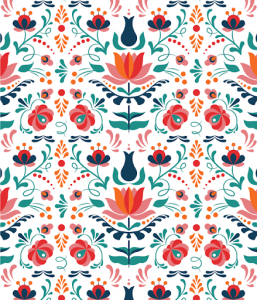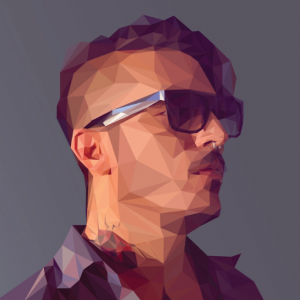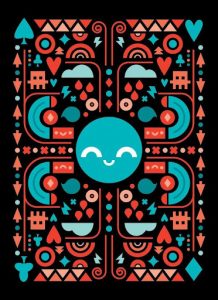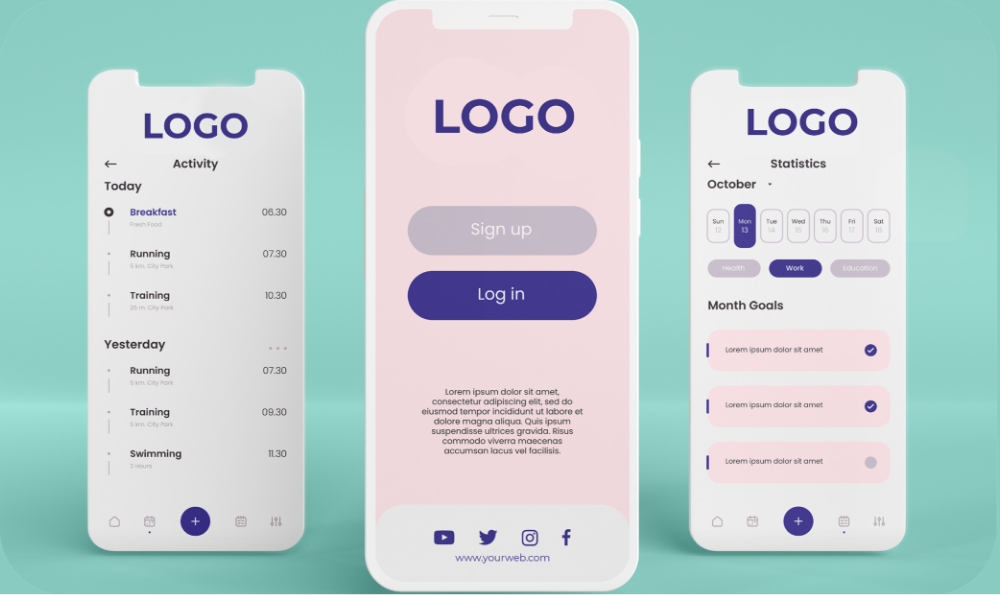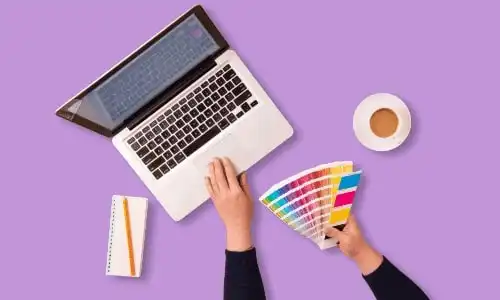
The 20 best Adobe Illustrator tutorials for graphic designers
If you are an aspiring graphic designer or don’t have the resources to hire one and need to do the design work yourself, understanding the software, such as Photoshop or Adobe Illustrator, and the skill sets that you need to master these is the first step.
Adobe Illustrator and Photoshop are two applications that perform similar tasks, but there are some key differences. The biggest difference being that Photoshop is for photo editing and Illustrator is for creating vector graphics. Let’s just briefly discuss the difference between the two.
What is the difference between a photo and a vector image?
A digital photo is an image that consists of a certain amount of pixels. Consider when you take a picture with a phone and enlarge the image. At a certain size the image becomes blurry, pixelated and loses all the clarity. Photos also often have more and more vibrant colours than vector images, but if you plan on enlarging the photo for a billboard or poster, you need to ensure that the pixel resolution is appropriate.
A vector image consists of points, lines, shapes, and curves based on mathematical principles. This means that the image can be enlarged indefinitely. If you aim to enlarge a design for billboards, posters or even for a mug or t-shirt, vector images are the best option.


Is Adobe Illustrator best for graphic design?
Adobe Illustrator is software designed for creating packaging, logos, web graphics and scalable designs. These graphic designs can be enlarged to the size of a football field or as small as the head of a pin! As Adobe put it themselves; “Illustrator is powered by vectors, so designs are always clear – never pixelated.”
Although there are numerous free software available for graphic design, Adobe Illustrator is the most reliable and up to date software application for graphic designers. The benefits far outweigh the costs – and if you aim to make graphic design part of your daily or weekly operations, investing in reliable software with regular updates and bug fixes is a no-brainer.
How long does it take to learn Adobe Illustrator?
As with any new software, if you’re unfamiliar with the terminology and tools used, the learning curve might be a bit steeper. We can’t tell you that you’ll acquire the skill in a certain amount of time, but we can say with confidence that what you put in is what you get out. When you regularly practice, follow tutorials and diligently work on your craft, you can get the fundamentals down fairly quickly. To master Illustrator may take some time, but the more you practice the faster you’ll achieve your goals.
Does Adobe Illustrator have tutorials?
Fortunately, there are some amazing tutorials available for you to work through and learn the do’s and don’ts about Graphic Design and Adobe Illustrator. Adobe has curated tutorials from beginner to advanced – so no matter what your experience level is, there will definitely be some that tickle your fancy and that will improve your knowledge of the software and its application in graphic design.
The best of it all is that the tutorials are absolutely free to use and even come with the resources you need to follow the tutorials down to a tee. But if you are on the search for something a little more niche or just simply feel like getting input from sources other than Adobe, let’s take a look at our top 20 Adobe Illustrator tutorials.
20 Illustrator Tutorials
1. Get to know Illustrator
Your journey starts here. If you are new to Illustrator or want to refresh your memory on how the user interface is laid out and the tools you are able to use, this tutorial is perfect for you.
2. How to design a colourful Hungarian Folk art pattern in Adobe Illustrator
Second on our top 20 Illustrator tutorials, is this beautiful Hungarian art style. In this tutorial you learn about global influences, patterns, adobe illustrator basics and vector images. If you are interested in making pattern art, this tutorial will lay down the foundation for beautiful patterns and striking designs.
3. How to design a progress bar for games in Adobe Illustrator
If you have played games in the past, you might have noticed the progress bars that indicate a score, health or other features of the game. This is a great skill to have and shows you how to create animated and gamified art for interactive websites and games alike.
4. Create a futuristic HUD interface
This tutorial is specifically useful for making info-art or explainers. The focus here lies on the techniques you need to create a futuristic interface with dynamic colours, graphs and information.
5. Learn how to create a low-poly portrait
Low-poly art is becoming increasingly popular, and in this tutorial Breno Bitencourt takes you through the process of creating striking visual low-poly portraits. From choosing a good reference photo all the way through to how to approach it in Photoshop and Illustrator.
6. Create a geometric, kaleidoscopic design
Kaleidoscopic effects are always effective to keep your eyes busy and mind entertained. The image consists of loads of smaller, simpler designs, but when you put all of them together in a mirrored manner, the effect is rather stunning. This tutorial will show you how to take art from sketch to an impressive multifunctional design.
7. Create a Vector portrait
In this tutorial you will learn how to create a Vector portrait. This type of design is great for professional looking illustrations – and best of it all – you don’t need to be able to sketch! Start with a basic image and work your way to an inspiring portrait that you can size up indefinitely.
8. Create a web icon
With the internet being used more often than any other media, being able to create a web icon is a crucial skill for any designer. This tutorial offers to teach you how to combine shapes and designs into memorable icons for any digital project.
9. Add and create textures in Illustrator
Whether you are looking for a way to add a striking background, attractive text or just to spice up your designs, adding a fresh and unique texture is a sure-fire way to add some flare. This tutorial takes you from the basics.
10. Illustrator keyboard shortcuts
Once you’ve got the hang of Illustrator, you likely spend a significant amount of time performing similar tasks (think switching between tools, cut, copy, paste, crop, add-remove layers etc). This tutorial shows you exactly which shortcuts are the most handy to speed up your workflow instantly.
11. Design a gradient logo
Gradient logos are fun and interesting ways to breathe life into an otherwise bland looking logo. It’s a technique you can employ to blend the colours of your logo into other backgrounds. In this tutorial you’ll learn about all the tools, approaches and techniques you need to make sure that your next logo design suits even the most demanding of needs.
12. How to create stunning 3D text
3D typography is a fantastic way to turn a boring text design into an attractive and alluring title or text. This tutorial shows you exactly what you need – from selecting the height and width all the way to setting the lighting and shadows with Gaussian Blur.
13. Create watercolour brushes
Watercolour painting on canvas is one thing, but to do it in Illustrator is a different ball game altogether. In this easy to follow tutorial you will learn where to download watercolour brushes all the way to creating amazing watercolour art and text.
14. Turn basic stick-figures into stylish graphic figures
Whether it’s an infographic, animation or just a simple design, creating unique stick-figure-like characters is a useful way to add some unique flare to your designs. Start off with a simple hang-man style figure and work it until you have a stunning art-figure!
15. Create a lightning effect
Lightning bolt illustrations are a must-have in your arsenal of skills, and this tutorial covers just that. Start with setting up your grid all the way through adding strokes, blends and overlays to create the most convincing of lightning designs.
16. Create retro 70s background art
Retro backgrounds are all but a thing of the past. In this tutorial you will learn just how to create a vector image with transform effects, different patterns and how to stitch all of it together to make fantastic 70s retro backgrounds.
17. Create a fantasy illustration
This tutorial is a webinar that shows you how to create a fantasy illustration from the bottom up. You’ll learn how to use digital watercolour, acrylics and Gouache, Sergeant brush and a variety of blenders.
18. Create realistic portrait illustrations
In modern digital illustration, realism is very popular. It’s a blend between photorealism and hyperrealism in an animated form. In this tutorial you will learn how to capture reality through fantastic detail, brilliant emotional portrayal and accuracy in your composition.
19. How to create a mascot
Whether you are designing a mascot for a school team, website or product, being able to capture emotions in a cartoon character is an art by itself. In this tutorial you will learn how to concept and sketch your ideas and bring them to fruition through Adobe Illustrator.
20. Create colourful Vector landscapes
The last tutorial that we recommend is to create stunning Vector landscapes in Adobe Illustrator. This tutorial takes you through all the steps to create landscapes for fictional and non-fictional scenes.
Looking to sharpen your Graphic Designing skills? Join our online graphic design course today!

